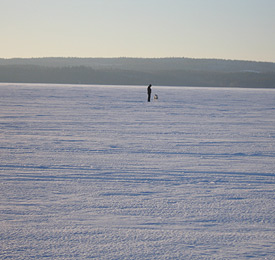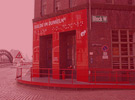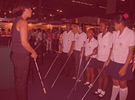Dialogue in the dark
For years now, "Dialogue in the dark" has been touring all over the world and is leaving a deep and lasting impression with young and old people alike. What is it, that tempts people in Milan, Paris, London, Vienna, Tokio, Rio de Janeiro, Mexico City, Hamburg or Frankfurt to discover the invisible and let themselves be guided by blind people through an exhibition without pictures?
Let us take a look into darkness. Darkness is not the real life situation of blind people, and it would be over-simplification to assume that "Dialogue in the dark" can simulate blindness. Darkness is a metaphor and stands for marginalization and discrimination, to which disabled people are still being subjected. To be disabled means primarily being defined by your deficits and not having the same chances as people without a disability. Darkness however, also stands for the fears within us. However, darkness, as 18 years of "Dialogue in the dark" have taught us, can also be a marvellous medium for communication and encounter. A place without beautiful appearances, where prejudice and the quick once-over are impossible, it is the voice and the contents that count, just like intuition and readiness to help. Only he who talks, exists. People who are silent disappear in the impenetrable darkness.
This is the reason why in "Dialogue in the dark" the focus is on the Dialogue and not on the experience in the dark; the dialogue with oneself, with the others who have joined in this journey through the dark, and the dialogue with disabled people. Just switch off the light and the blind are blind no longer, and we sighted, are blind and helpless.
Why do people embark upon such an experience? Firstly, without doubt, to experience oneself in a new way. But also, because we are tired of the never-ending barrage of pictures and images with which we are confronted every day. And so the question remains, which senses and perceptions slumber inside us. And here the Japanese are no different from the Mexicans, and the Italians do not differ from the Germans.
Andreas Heinecke, author of "Dialogue in the dark"









